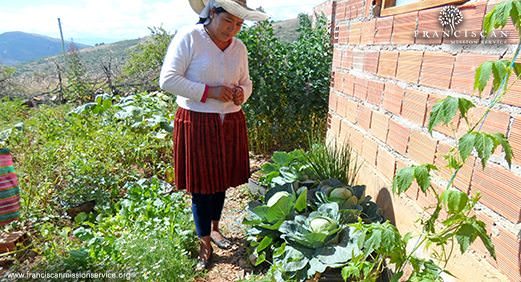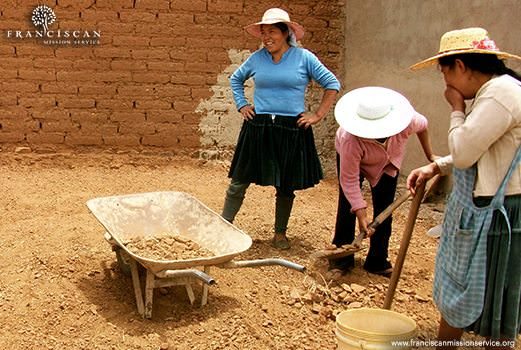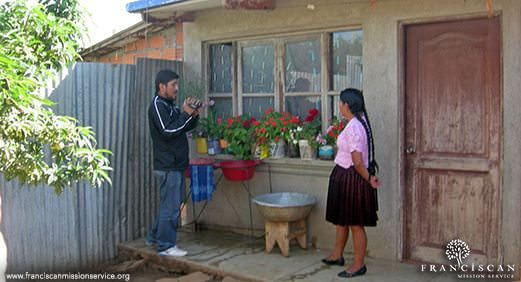The Gift of Water

Editor’s Note: In a follow up to her last post about water shortages in Cochabamba, missioner Annemarie Barrett emphasizes the importance of gardens in the community through the story of one of the women in Santa Rosa.
Recently I wrote about the severe water shortages we are currently experiencing in Cochabamba.
The women in Santa Rosa believe it is important to share the impact of growing organic food for their families and how it has transformed their lives, and most importantly, how water makes that possible.
These women know their own potential. They know how they could transform the health problems in their families and communities if they could produce more fruits and vegetables, if they only had more water.
Today I would like to share the testimony of one particular woman, Maria, in Santa Rosa who has been producing organic food in her patio for over three years now.
I recently had the opportunity to hear her explain, in depth, the impact her production has had on her life and the life of her family. Let me share a bit of her story with you.
Over three years ago, when Maria was first starting her garden she only had two fruit trees, one lemon and one passion fruit. The rest of her patio was filled with rocks.
Now she exclaims proudly that her patio “está llena de plantas” (full of plants) and “casi no le falta nada” (there is almost nothing she needs that she doesn’t already have). We supported Maria in digging out the rocks from her land and naturally fertilizing the space to encourage growth and life. However, Maria did the majority of the work.
Maria now produces over 20 types of vegetables, 8 kinds of fruit, multiple grains, four kinds of herbs, and a wide variety of flowers, and more.
She also now raises chickens, rabbits, sheep, and turkeys for meat for her family and to sell in order to generate more income to buy more water for her plants.
She explained, “A mi siempre me gustaban las plantas” (I have always liked plants). But after seeing the gardens of other women in her neighborhood and on the exchange visits that we do in other parts of Cochabamba, she was motived to expand her production and said, “Quiero producir más” (I want to produce more).
She explained, “Me siento feliz al ver lo que he almacigado, más que todo trabajo para eso, para ver las plantas que he producido… Cada mañana salgo y veo mis plantas.” (When I see what I have planted, I feel happy. And more than anything else, that is what I work for, to see the plants that I have produced… Every morning I walk outside and see my plants.)
Maria’s experience is a common one among the women who work with us. The experience of growing their own food and providing for their families is profoundly spiritual and consoling. Many of the women tell us that their plants give them joy, energy, and motivation every day.
And it is a contagious experience; many of the women who initially received little to no support from their husbands eventually witness a deep change in them. While they once were criticized and even prohibited from dedicating time to their gardens, eventually their husbands join their wives in the work in the garden and admire the plants by sitting in their gardens on the weekends or after a long day of work.
Maria shared with us that it was never easy for her to form friendships, but through joining this project and participating in this women’s group, she has learned to be more social and more open to making friends with other women in her neighborhood.
She says her neighbors now see what she is producing and are motivated to do the same. Maria enjoys showing them how to produce food in their own patios and says that through our project she is learning how to “valorarse a si misma” (to appreciate herself) as a woman. She says her plants make her happy and she has noticed a significant change in the health of her family.
When we are engaging a water crisis, we must work to transform the waste and injustice of our systems that create such dire need in marginalized communities. And at the same time we must choose to invest in the potential in these marginalized communities, a potential that brings about a deeper appreciation of what water makes possible in our lives. Once we internalize that deep gratitude, we can allow it to transform into concrete action to conserve the gift of water.
Reflection Question: Do you take natural resources like water for granted? How can you remind yourself that it is a gift and should be treated as such?
Tagged in:


